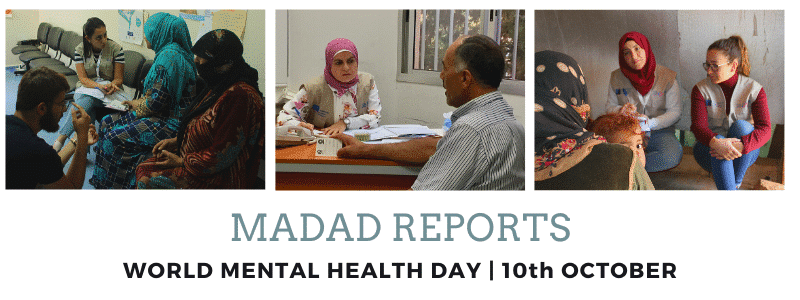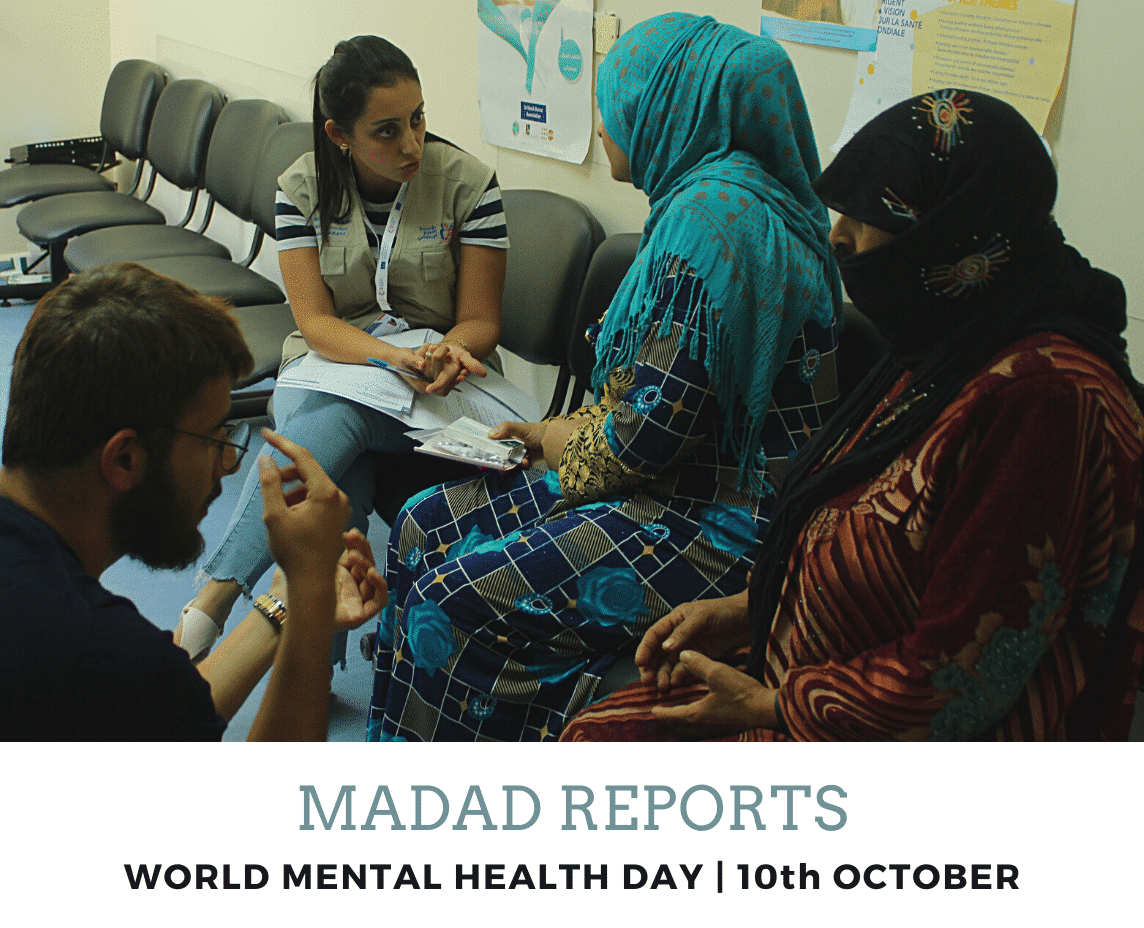
October 10 is World Mental Health Day, an opportunity to raise awareness and mobilize people on mental health issues.
The Fundación Promoción Social, aware of the need to take action to treat mental illness and achieve the recovery of the patient, has directed its efforts towards providing health and psychosocial support services (MHPSS) in its specialised clinic in Zahlé (Bekaa Valley) to people in a humanitarian emergency situation.
These people are seriously affected by anxiety and mental illness, motivated in some cases, and aggravated in others, by the hard experiences they have lived through and their current difficult circumstances.
This work was carried out in the framework of the Social Promotion Foundation’s project: “Reducing economic barriers to access health services in Lebanon (REBAHS).”
The project was financed by the European Union, through the EU Regional Trust Fund in Response to the Syrian crisis (MADAD Fund)1, which depends on the Commission’s Directorate-General for Neighbourhood and Enlargement Negotiations (DG NEAR).
During the progress of the project, Social Promotion Foundation has carried out these key reports on mental health in Lebanon:
1- The “Emotional Crisis Management (ECM) Protocol” document, available in English and Arabic, has been carried out with the collaboration of the National Mental Health Programme (NMHP) of the Lebanese Ministry of Public Health (MoPH).
An important need identified by the Mental Health and Psychosocial Support (MHPSS) Working Group was the empowerment of professionals to adequately intervene and support people who are experiencing an emotional crisis, regardless of the underlying factors that have led to this crisis.
An emotional crisis is often triggered by unmet needs, such as people’s inability to access food, housing, health services, employment, education, etc. When emotional crisis situations are not properly managed, they can put the person or their environment at risk of harm. This can and should be avoided if staff are properly trained to respond to such situations.
This emotional crisis management protocol aims to provide guidance to frontliners on best practices to help people in emotional crisis to reduce their level of arousal and reach a healthy state of interaction where positive decisions can be taken.
It is a set of guidelines and practical advice for engaging people in crisis in a safe manner, determining their most pressing concern and activating the mechanisms that can most appropriately address that concern.
Throughout the protocol, frontliners are also invited to know and manage their own personal triggers and warning signs that may challenge the management of a crisis. As NMHP comments, this manual will bring us closer to “all people living in Lebanon having the opportunity to enjoy the best possible mental health and well-being.”
2- The “ECM Training Report”, is a compendium of Training of Trainers (ToT) on emotional crisis management (ECM) that is designed to develop participants’ skills and be able to train frontline humanitarian personnel on how best to help people who are in a state of emotional crisis.
This training provides an understanding of emotional crisis events, related risk factors, warning signs, early intervention measures and self-management tips.
It also describes the mechanism for involving people in crisis in a safe and supportive manner (de-escalation techniques), identifying personal triggers and priority concerns, and activating important workplace policies to prevent future emotional crises.
3- The deliverable “ECM Roll-Out Sessions Report” is a report that covers ECM Roll-Out Sessions (ROS) where the knowledge and skills are provided to mental health professionals so that they can apply the ECM protocol.
4- The deliverable “PM+ Training Report” is a compendium of the Training of Trainers (ToT) on Problem Management + (PM+) to mental health professionals by the Social Promotion Foundation team in Lebanon.
The objective of the ToT in PM+ is to provide knowledge, skills and materials that qualify mental health professionals to conduct PM+ sessions by themselves within their own organisations and professional activity.
PM+ is considered one of the first intervention programs developed by WHO within the Mental Health Gap Action Programme (mhGAP), with the aim of reducing the gap between the need for mental health services and the limited number of available professionals who can meet this need.
The program focuses on shifting low-intensity interventions from highly skilled professionals to assistants with little or no clinical experience to expand access to needed services.
5- The “PM+ Roll-out Sessions Report” is a document of Roll-out Sessions (ROS) on Problem Management + (PM+) trainings for mental health professionals.
¹The Trust Fund was established in 2014 to respond in a coordinated manner to the “needs of Syrian refugees in neighbouring countries, as well as those of refugee-hosting communities and their administrations, in particular with regard to resilience and early recovery”. 2.2 billion, including voluntary contributions from 21 EU Member States (including Spain), Turkey and the United Kingdom, for projects in the fields of health, education, livelihoods, protection and water management.





